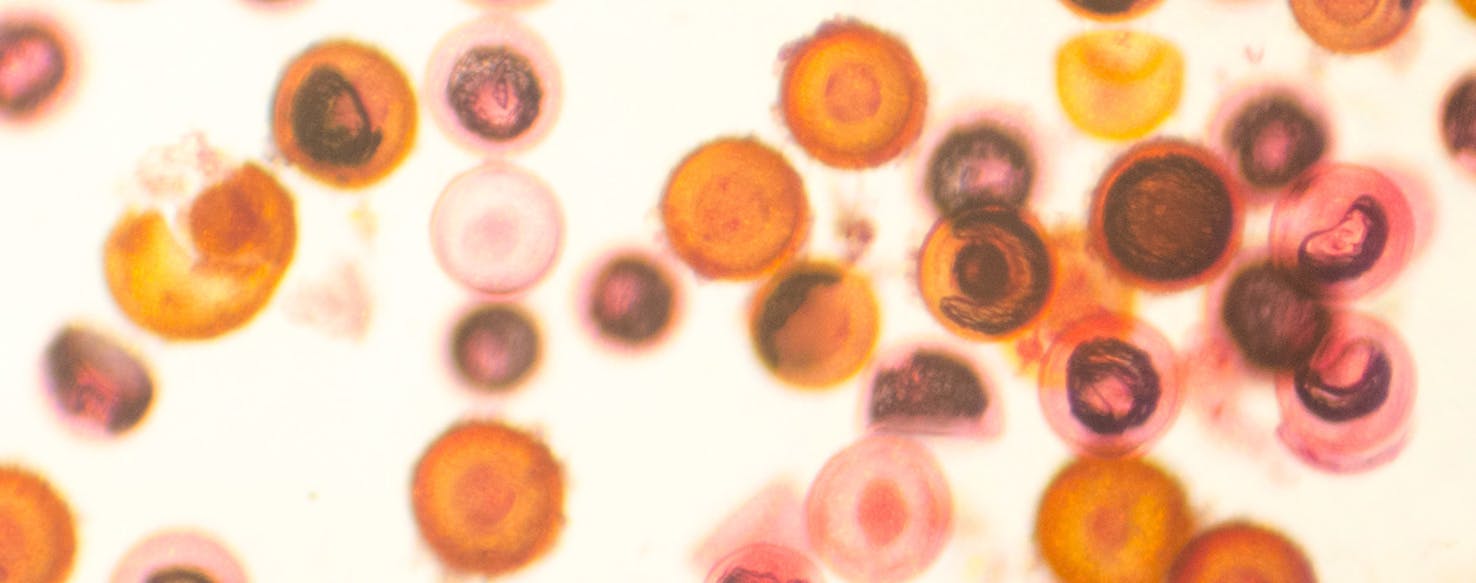There are very few things out there that are quite as gross as a tapeworm. Maybe it's because they live inside of you, feeding off of everything you eat, that makes them so nasty. Or, perhaps it's how big they can get, mimicking small snakes more than worms. But probably, the worst things about tapeworms is the way the make their exit from the body. No matter how you look at it, these parasites are truly the stuff of nightmares. We know they can pass into humans, but are our furry friends also at risk? Can dogs get tapeworms, and are they the same as the ones in people?
Can Dogs Get Tapeworms From Humans?
NO!
Dogs for sure get tapeworms, but they generally are not the kind that humans get. The main species of tapeworm that dogs get need fleas to start their life cycle. To get the worm, you have to eat an infected flea, which is pretty easy to do if you're a dog. This is because dogs scratch themselves with their mouths, and if they have fleas they're likely super itchy. The tapeworm that humans are prone to is one that spreads by shedding its eggs in poop. If you come in contact with that poop and then inadvertently touch your mouth, you can become infested!
Does My Dog Have Tapeworms?
It’s a very unpleasant thought, but tapeworms are actually pretty common among our canine pals. Most dogs don't even get that sick from these vile creatures. However, there are some signs you can watch for to tell if your pup has tapeworms.
Symptoms
At first, the only major sign of a tapeworm infestation is itchiness around your dog's anus. Your pup may even drag his rump around on your carpet, much to your dismay. After a while, the worms really start to steal your dog's nutrients, causing weight loss and dull fur.
Causes
As previously mentioned, dogs mainly get tapeworms from fleas. Fleas love to feast off of dog blood. If your dog is being bitten by an infected flea, he will likely bite back, trying to relieve the itch. At this point, he can easily swallow the bouncing bug full of tiny tapeworm larvae.
Diagnosis
If you suspect your pupper has worms, take him in to see a vet. The vet will need a sample of your pooch's poop to test it for eggs or worm pieces. After the pieces have been found, the worms can be identified.
How Do I Treat My Dog's Tapeworms?
Once you know for sure that your dog has worms, you'll be eager to get rid of them! Thankfully, in most cases, these long, wriggly freaks don't put up much of a fight.
Treatment
The easiest way to treat tapeworms is with the use of a drug called praziquantel. After it is ingested, the worm will start to disintegrate inside of the body. The dead pieces of the critter will come out in your pup's poop.
Recovery
Even after a dog has had medication, he can still get infected with tapeworms. Make deworming a regular part of your veterinary treatments to ensure that your dog is parasite-free! Also, it's good to administer monthly flea and tick prescription so that infected fleas won't be able to bother your fur-baby.
If you'd like to read stories from other owners dealing with tapeworms, head over to
Tapeworms in Dogs .
How are Tapeworms Similar in Dogs and Humans?
Tapeworms cause a lot of the same issues in people and their pets, even if the worm species are different. Some of the common issues include:
How are Tapeworms Different in Dogs and Humans?
Dogs have adapted to parasites a bit better than their owners have. Main differences between tapeworm infestations in canines and humans are:
-
Severity - in rare instances, tapeworms can enter a person's brain or liver
-
Transmission - because humans don't eat a lot of fleas, they tend not to get the same types of tapeworms as their four-legged friends
-
Coat quality - humans aren't born with a lovely fur coat, so we can't use its shine as an indicator of health
Case Study
Puppies are more likely to get severe worm infestations. One poor girl was so full of worms that after six at-home treatments, she was still passing worm pieces. The parasites started robbing her of all of her nutrients and her body began to shut down. Some vigorous vet treatment was needed to kick the long, slimy buzzards out once and for all! When dealing with a young pooch, fast action is a must.


